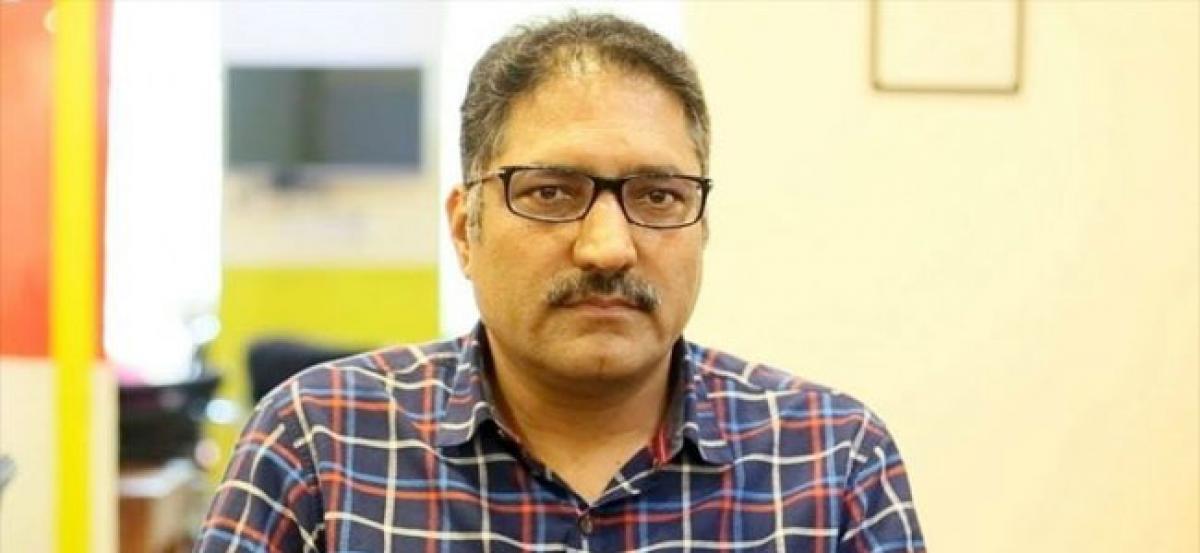Live
- Rohit-led Indian team meets Australian PM Anthony Albanese in Canberra ahead of tour game
- Emotional moment for Cong, nation: Pawan Khera after Priyanka Gandhi takes oath as MP
- Mizoram new Chief Secretary Khilli Ram Meena takes charge
- Explosion Reported At Delhi's Prashant Vihar Sweet Shop: No Casualties Reported
- PCB Stands Firm: Naqvi Rejects Hybrid Model, Demands Equality for Champions Trophy 2025
- Minister Anam Ramanarayana Reddy Highlights Transformations in Tirumala in Coalition Govt
- IITF 2024 closes on high note with over 1 million visitors
- BJP leaders welcome court's notice over ‘temple beneath Ajmer Dargah’ claim
- BJP-led NDA’s resounding assembly election wins to push economic reforms
- Udvegam Review: A Gripping and Illuminating Telugu Courtroom Drama
Just In
Beginning Of A Story At The End Of Two Bullets: Shujaat Bukhari and Gauri Lankesh


During the time when the late journalist Shujaat Bukhari was shot dead and allegedly murdered by a jihadist group operating in the Kashmir Valley, another extremist, an allegedly right-wing Hindutva-motivated individual, Parashuram Waghmore reportedly told police: “I killed Gauri Lankesh to save my religion.”
During the time when the late journalist Shujaat Bukhari was shot dead and allegedly murdered by a jihadist group operating in the Kashmir Valley, another extremist, an allegedly right-wing Hindutva-motivated individual, Parashuram Waghmore reportedly told police: “I killed Gauri Lankesh to save my religion.” Bukhari and Lankesh, two journalists who were killed in two very different corners of India yet whose deaths point to the same chilling reality of those unarmed non-violent voices occupying the middle ground between ideological extremes, are increasingly glaring at the barrel of a gun.
Social media has opened up a new universe to disseminate violence and prejudice and moderates are under furious attack for being either “anti-national” or “sellouts”. Today, the middle ground, that crucial body of people who keep society sane, who attempts to build bridges between dissenting groups and it's establishment, who want to talk to both sides because they are searching for solutions and not seeking to impose certainties by armed diktat, are in danger of being forever silenced.
Bukhari and Lankesh were labelled by both ends of the political spectrum. Bukhari was actively involved in the Track II India-Pak process. He was called both a “soft separatist” and “backed by ISI script” by establishmentarian voices as well as a “RAW agent” and “Indian tout” by radical Kashmiri opinion.
Lankesh raised a fearless voice against religious majoritarianism, and at the same time worked to persuade Naxals to renounce the gun. Activists like her are sometimes dubbed “Hindu hating communists” by the Right and “bourgeois liberals” by the radical Left.
Zealous religious fanatics believe they have the answer, that they have seen the light. Because they are motivated by blind faith and blind belief, they have no interest about eliminating and doubting non-believers. Those who want to build a middle ground are thus the mortal enemies of those intent on polarisation. Both radical Hindutva forces and radical jihadist forces benefit when society is polarised, and the moderate middle-of-the-roader becomes their arch enemy because he or she is determined to prevent this polarisation.
Denouncing a Jignesh Mevani as “anti-India” will not take away the powerful Dalit critique of Hindu caste oppressions. Similarly denouncing former President Pranab Mukherjee for addressing the RSS and for opening the door for a dialogue with those who question the Nehruvian version of secularism will not bring down the ongoing rightist challenge to the “Nehruvian consensus”.
Indian democracy has been defined by the middle ground, by civil liberties groups like PUCL, PUDR who fought the Emergency, and have not only reached out to the radical Left but also protested bans on plays like Mi Nathuram Godse Boltoy which aired the viewpoint of Godse. Extremists want to squeeze this space and create a greater acceptance of violence instead of dialogue. If society begins to accept violence as the new normal, then the middle ground is in danger of being wiped out. Recently Maharashtra police cast doubt on the integrity of the Elgaar Parishad held during the Dalit rally at Bhima Koregaon. Yet this Parishad was organised by eminent individuals who are part of a rich tradition of Indian democracy which has always believed in reaching out to radical Ambedkarites and others in a spirit of dialogue.
Sometimes governments simply outsource violence to non-state actors. A Congress government created a terror-spreading Bhindranwale, today’s BJP-led government rarely condemns terror-spreading cattle-protectors. Gandhi regarded big government with such deep suspicion precisely because of the violence it is capable of and the harm it can do to the society. For the middle ground to flourish, big government or mega state has to be rolled back from enforcing its writ through various forms of violence.
The murders of Bukhari and Lankesh reveal the urgent need not only to protect the middle ground but also to stop the inherently violent big government (of whatever political stripe) from encroaching too far on individual freedoms; when governments (directed primarily by politicians) encroach too far, civil society is inevitably polarised into potentially violent rival political camps leaving no space for the non-violent middle ground.

© 2024 Hyderabad Media House Limited/The Hans India. All rights reserved. Powered by hocalwire.com






